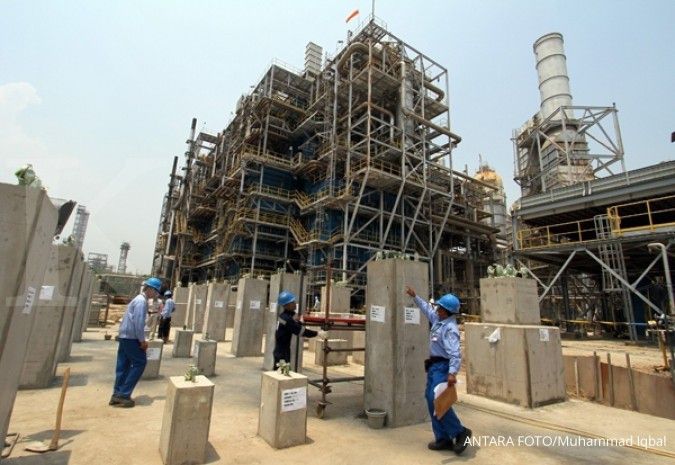JAKARTA. Publicly listed petrochemical giant Chandra Asri Petrochemical (CAP) is looking for more tax incentives for its under-construction US$435 million synthetic rubber plant in Cilegon, Banten, to maintain profitability.
The company, which formed a joint venture between CAP and French tire maker Compagnie Financière Groupe Michelin to build the Cilegon plant, has submitted a request to the government for tax exemption once it starts commercial activities.
The project is expected to start this year and be completed within two years, and is handled by CAP’s wholly owned subsidiary Petrokimia Butadiene Indonesia (PBI) and Michelin, which is an investor in Jakarta-listed tire maker Gajah Tunggal.
“With our new expansion to start production, our costs will also significantly increase. That’s why we need a tax holiday, which goes to our profit and margins,” explained CAP corporate secretary Suryandi.
A tax holiday is a tax incentive scheme that offers an income tax break of between five and 10 years for projects in high-priority sectors — base metals, oil refining, basic petrochemicals, machinery, renewable energy and telecommunication equipment — with a minimum investment of about Rp 1 trillion (US$76.7 million).
The government is reportedly revising tax holiday and tax allowance regulations, as well as adding tax incentives in special economic zones to lure more investment, boost exports and curb imports to bolster more sustainable economic growth. The revision is expected to conclude in the first half of the year.
Tax allowances cut taxable income up to 30 percent of total investment realized over six years for certain labor-intensive projects in remote areas with a minimum investment of Rp 50 billion.
CAP — part of diversified listed company Barito Pacific, which is owned by tycoon Prajogo Pangestu — was granted a five-year tax holiday for PBI in 2013.
The country’ largest integrated petrochemical company producing olefins and polyolefins is also the only producer in the country operating a naphtha cracker and is the sole domestic producer of styrene monomer and butadiene — usually used to produce synthetic rubber and plastics.
Late last year, CAP signed an agreement with oil and gas firm BP Singapore Pte Ltd. (BP) to continue studying development of a condensate splitter project in Cilegon, which is expected to help CAP halve its heavy reliance on imported raw materials by 2019. The company imports all its raw material.
The condensate splitter refinery will turn oil condensate into products such as naphtha, used as petrochemical feedstock, and is intended to process up to 100,000 barrels of feedstock per day.
CAP also plans to disburse $250 million in capital expenditure (capex) this year.
About $135 million of the capex will be used to conclude the company’s $380 million naphtha cracker expansion project, which will increase the facility’s existing ethylene production capacity by 43 percent, from 600,000 kilotons of ethylene to 860,000 kilotons. The upgraded naphtha cracker project is set to commence in January 2016.
The company has yet to announce its 2014 full-year financial results.
CAP made $13.18 million in net profit in the first nine months of 2014, a significant improvement compared to the $6.98 million net loss it experienced in the same period a year earlier. The company’s net sales increased by about 7 percent from $1.81 billion during the January to September period last year to $1.94 million.
“In 2013, and for the nine-month period ending Sept. 30, 2014, the group’s product margins improved from the trough in 2012 as product prices and demand picked up with economic recovery in China, US and Europe coupled with a slowdown in new capacity additions coming on stream during the year,” the company’s January-September financial statement reads. (Anggi M. Lubis)
/2014/09/11/1761945178.jpg)










